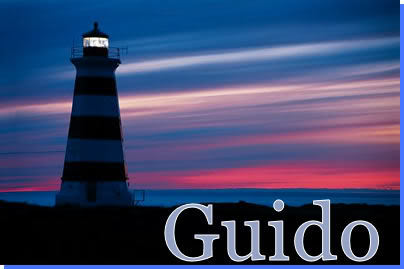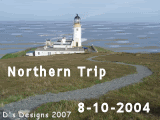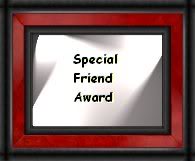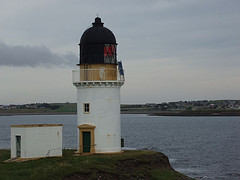This is UK politics at foundation level. I'll try to explain.
Back in 1707, the Kingdoms of Scotland and England were merged under the one Crown and the one Parliament. After two unsuccessful attempts to put a Pretender on the Scottish throne (in 1715 and 1745), things looked pretty much set in stone. Since 1999, that stone looks pretty brittle.
Scotland got devolved government. A Scottish Parliament was set up and elected. A Scottish Executive instituted. It does not have tax-raising powers, nor does it have jurisdiction over foreign or defense affairs. Things like education, healthcare and transport were devolved from Westminster to Holyrood. For eight years, the Labour Party headed up the Executive, under First Ministers Donald Dewar (who died in 2000), Henry McLeish and Jack McConnell.
In May 2007, elections to the Scottish Parliament were held. It yielded 184,000 invalid ballot papers and a victory by the Scottish National Party by 1 seat. SNP leader Alex Salmond became First Minister. It should be explained that the SNP aims for full independence for Scotland from the UK. This requires a referendum, and the other parties in the Scottish Parliament are opposed to this. For a referendum to be organised, the Scottish Parliament requires a two-thirds majority. The SNP does not have that.
Since devolution, certain matters of state have been devolved away from Westminster to Holyrood. This has created an anomaly in Parliament. Members of (UK) Parliament (MPs) are not able to vote on devolved matters. That is the prerogative for MSPs. (Members of Scottish Parliament). Scotland still has MPs in Westminster. However, English MPs complain that Scottish MPs can still vote on matters pertaining to England which English MPs are not able to vote on where they pertain to Scotland (remember: schools, transport etc). This is known as the West Lothian Question, after the constituency of Tam Dalziel who first raised the question.
This weekend, a senior Conservative MP, Sir Malcolm Rifkind (erstwhile MP for an Edinburgh constituency, now for Kensington and Chelsea in London) has really set the circus alight by stating that Scottish MPs should be barred from voting on English matters. A solution to the West Lothian Question, which could lead to the break-up of the United Kingdom. Grist to the mill of the SNP, who want precisely that. The Conservative Party in Scotland, just out of interest, is known as the Conservative and Unionist Party. Mr Rifkind appears to go against his own party's principles on the matter, but this is not just party politics we're talking about.
England and Scotland are supposed to be at loggerheads with each other, but in actual fact are more like little brothers, squabbling amongst each other until the big bully comes on the scene. There is resentment in certain quarters in England against the Scots being subsidised by Westminster - your average Scot gets 5 times more from central government than someone south of the border. Conversely, there is a sector in Scottish society (partially spearheaded by the SNP) who look to the past, and how they were taken advantage of by the English. If I look at Lewis, they sent away half their menfolk during World War I. One out of six never came back.
I have found in European history that living in the past is playing with fire. The Balkans War of the 1990s was fought on the strength of the battle of the Field of the Thrush in 1389. The "troubles" of Northern Ireland are justified through the Battle of the Boyne of 1688.
I think that breaking up the United Kingdom from both sides of the border is a dangerous road to take, as it stirs up mutual resentment. Not everybody in Scotland wants independence. I believe it is not economically viable, in spite of what the current administration is saying.
Sunday, 28 October 2007
Subscribe to:
Post Comments (Atom)












I found this very very interesting but know little of politics on that side.
ReplyDeleteToo bad things can't stay with the status quo.
~c~
Thanks for explaining this... I was confused too.
ReplyDeletebe well,
Dawn
I agree with your views Guido.
ReplyDeleteIt would be an insane move to break up the Union.
Alex Salmond is trying to put a bland face on his nationalist party but I am hoping to God that the Scots have their heads on the right way from now on if one day they are asked to take part in a referendum on the Union. Surely we can't be so gullible?
That is not a clever road to go down. Alex Salmond's party was very lucky to scrape by as they did. I am still suspicious of those spoilt votes.
Jeanie
Interesting, Guido. Please keep us updated. And, I still think "invalid" ballots were way too high a number.
ReplyDeleteVery interesting read....thank you for explaining it.....June:)
ReplyDeleteYou can imagine how hard it is for us across the waters to understand the relationship between Scotland and England or the one between Ireland and England. I try to enlighten myself by reading historical novels like one about "the year the French came" to Ireland to help them gain independence, which battle appeared to be extremely costly. I have taken a lot more interest in Scotland now that I have been reading your blog and also found out that my ancestors came from Scotland, both great grandpa and grandma, and I am not Irish. Oddly I did not feel Irish despite wanting to be. I just read R D Laing by his son which told a great deal about Scotland, where Laing was born and raised. I had no idea, but I found it fascinating. Now I am reading Janet Frame's story to discover towns in New Zealand were settled by Scots and her father was of Scot descent.
ReplyDelete